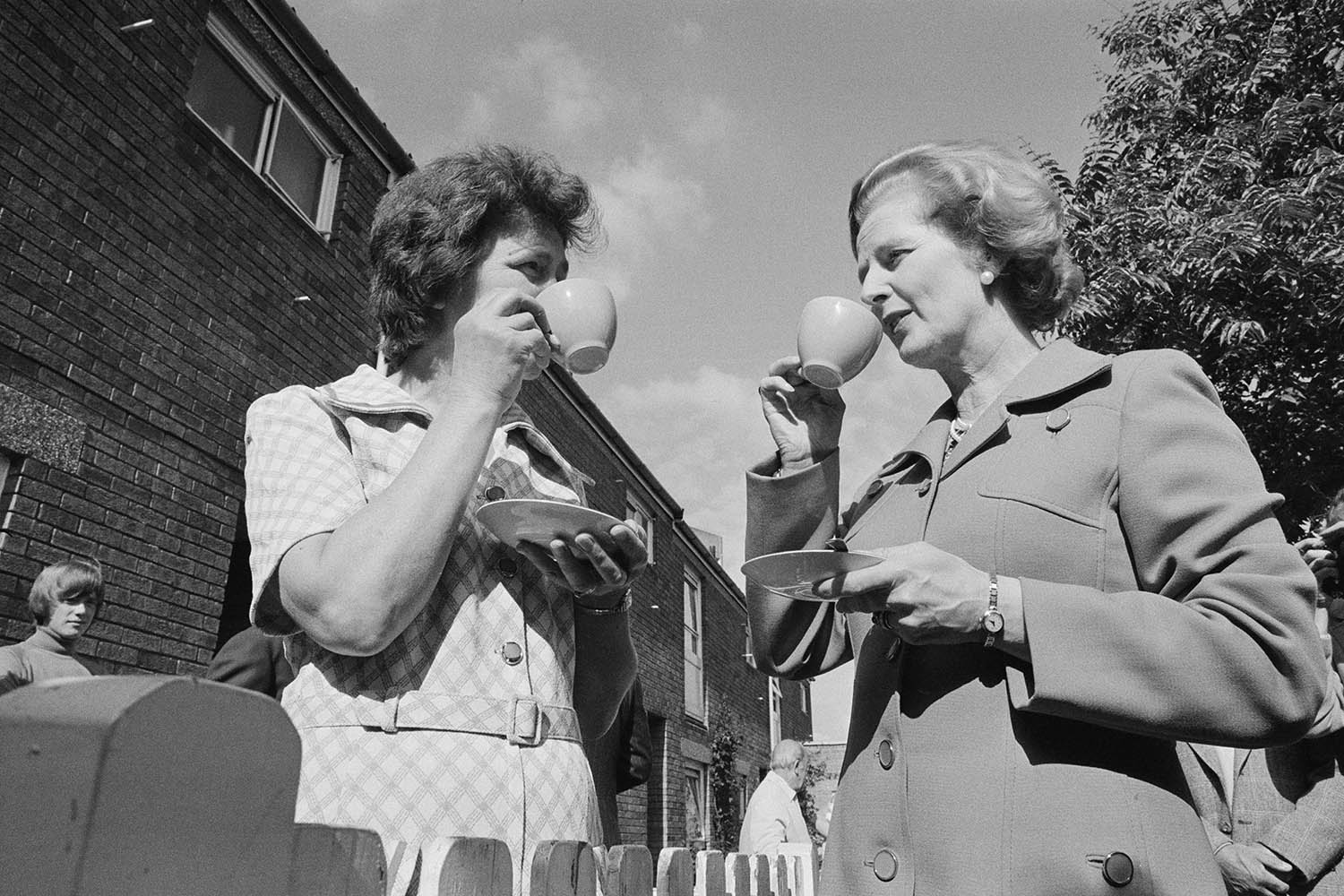“Society? There is no such thing!” Margaret Thatcher famously told Woman’s Own magazine in 1987. “There are individual men and women, and there are families.”
Thatcher’s critics viewed her sentiment as expressing a soulless selfishness, her supporters as an assertion of personal responsibility. Writing in 2006, the journalist Dominic Lawson, son of Thatcher’s longtime chancellor Nigel Lawson, celebrated Thatcher’s argument, suggesting that she would have recognised eBay as “the modern epitome of the classical idea of society”, a bizarrely transactional view that would seem to make the critics’ point for them.
I was reminded of Thatcher’s quote during the controversy over Keir Starmer’s immigration speech, and his fear of Britain becoming an “island of strangers”. The phrase implied that without a drastic reduction in immigration, and greater integration, society would become intolerably fragmented.
In the furious debate about whether Starmer was deliberately echoing Enoch Powell, another question was largely ignored: is Starmer right that Britain is becoming an island of strangers and that immigration is to blame? The question takes us back to Thatcher.
Her quote expressed a key theme underlying the transformation of Britain in the 1980s, as the social model that underwrote the postwar decades gave way to one defined by free markets, a globalised economy, social atomisation and, for some, an eBay model of social life. It’s a good place to start to unravel the roots of contemporary social dislocation.
In Thatcher’s Britain, deindustrialisation and a deliberate assault on organised labour destroyed working-class communities. “Close a pit, kill a community” ran a slogan during the miners’ strike of 1984-85, one that possessed meaning well beyond the coalfields. Forty years on, the material and social impact on those communities can still be felt. In place of manufacturing came low-wage, insecure, service sector jobs – the “Uberisation” of Britain, as a recent report put it.
With Thatcherism came also the sale of council housing, the virtual expiration of housebuilding and the rise of the private rented sector, accompanied by the neglect of high streets and town centres, the decline of public transport and the loss of public spaces such as pubs, clubs and youth centres. All these trends were exacerbated by post-2010 austerity policies. And all helped to construct communities of strangers.
The 80s ideological celebration of individualism, and denigration of collective life, was not simply an imposition from the right. It was also a legacy of the New Left, which emerged in the late 1950s, valuing personal growth as much as material change and seeking, in the words of its founding document in the US, “a meaning in life that is personally authentic”. This led to the “blurring of lines between the political and the personal”, as Tiffany Jenkins observes in Strangers and Intimates, her new study of the erosion of private life. Political activism became less about “changing laws or challenging institutions” than about “defining one’s own truth and confronting internalised oppressions”.
It helped to fashion a world in which we can make our innermost thoughts available to strangers but find it difficult to create social solidarity, a world in which both private and collective life have become debased. The influence of the New Left can be seen, too, in the rise of identity politics, another feature of a more socially fragmented age.
The weakening of the labour movement and the demise of class politics have narrowed our sense of who we are, leading us to imagine identity and belongingness primarily in the language of ethnicity and culture. The frameworks through which we make sense of the world today are less “liberal” or “conservative” or “socialist” than “white” or “Muslim” or “European”.
Newsletters
Choose the newsletters you want to receive
View more
For information about how The Observer protects your data, read our Privacy Policy
‘Politicians ignore deeper developments and blame everything on immigration’
‘Politicians ignore deeper developments and blame everything on immigration’
This process has been exacerbated by public policies that have sought to manage diversity through conceiving of Britain as a “community of communities”, in the words of the influential Parekh report on multiculturalism, depositing people into ethnic and cultural boxes, and using those boxes to define their identities and needs. The result has been the establishment of new social barriers and the undermining, paradoxically, of much of what is valuable about diversity.
It is against this background that we need to understand contemporary immigration. The difference between immigration now and in the 1960s and 1970s is not simply a matter of numbers, huge though they are. It is also the social context within which migrants find themselves.
Half a century ago, racism, far more visceral than today, created major barriers to migrants being accepted as British. Nevertheless, immigrants played a significant role in creating solidarity across the barricades of race and difference. Class helped provide a binding force. “We feel we are an integral part of the British working class,” insisted Avtar Jouhl, the late president of the Indian Workers’ Association.
Migrant workers joined unions and led strikes, from Red Scar Mill to Grunwick, becoming a key part of struggles to defend working-class interests. Today the binding effects of class are much weaker – but the centrifugal force of identitarian beliefs, including the strident voices of “white identity” insisting that migrants and minorities don’t belong, is far more powerful.
Britain may not be an island of strangers, but it has moved closer to being one over the past half-century. As with so many other issues, politicians prefer to ignore the deeper developments that have led us here, blaming it all instead on immigration. It is an approach that will lead to fruitful debates neither about immigration nor about social fragmentation.
Photograph by Jones/Evening Standard/Hulton Archive/Getty Images



